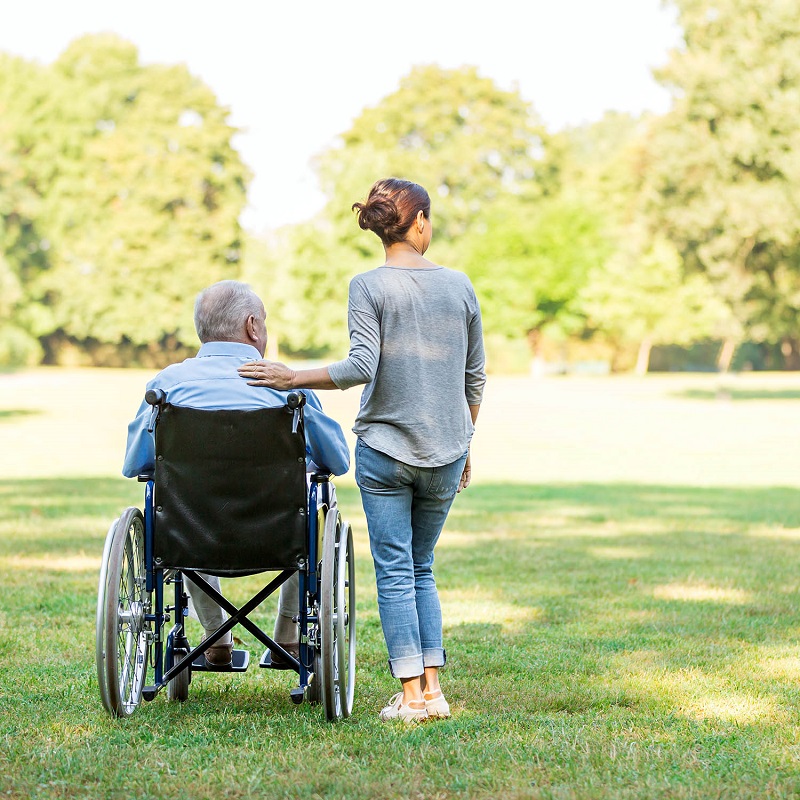Parkinson’s Disease at a Glance

Parkinson’s disease is a movement disorder that affects at least 500,000 people in the United States. It occurs when brain cells fail to produce enough dopamine, a chemical that helps to control movements, motivation, emotions, and sensations like pleasure. Symptoms of Parkinson’s begin gradually and become worse over time. They include trembling, stiffness, and poor balance and coordination. As Parkinson’s progresses, daily tasks like walking, talking, and chewing may become difficult. Depression and sleep problems are common. It’s unclear why some people develop Parkinson’s; genes may play a role, as well as exposure to chemicals in the environment.
For more information on Parkinson’s, visit the National Institute of Neurological Disorders and Stroke Parkinson’s Disease Information Page.
What the Science Says
Researchers have studied the following complementary health approaches for Parkinson’s:
Psychological and Physical Approaches
- Tai Chi. There’s limited evidence that tai chi may help to improve balance in some people with Parkinson’s disease, but studies have had mixed results. In a 2012 study of people with mild-to-moderate Parkinson’s, the group assigned to do tai chi twice a week for 24 weeks had greater improvements in their balance, stability, and walking speed compared to the groups who did resistance training or stretching. The tai chi group was also more likely to continue exercising after the 24 weeks, a follow-up study showed. However, two or three tai chi classes a week over 16 weeks wasn’t associated with improvements in walking, a smaller, 2013 study funded by NCCIH showed.
- Massage and Acupuncture. The research on massage and acupuncture for people with Parkinson’s is limited. There’s no strong evidence that either helps to reduce symptoms.
- Dance. Compared to other forms of exercise, taking dance lessons, particularly Argentine tango, appears to help with some symptoms of Parkinson’s for at least the short term, research reviews of multiple, small studies show. In general, participants’ balance, mobility, and quality of life improved. The studies didn’t include participants with advanced Parkinson’s.
Repetitive Transcranial Magnetic Stimulation (rTMS)
rTMS uses magnetic pulses to stimulate targeted areas of the brain. It’s been approved for certain types of depression, and a few (but not all) studies show that it may improve some symptoms of Parkinson’s. rTMS is non-invasive and differs from deep brain stimulation, a surgical procedure used to treat several disabling symptoms of Parkinson’s.
Caregivers: To protect your health and well-being, consider joining a support group, establishing a daily routine for yourself, getting exercise, and seeing your own health care provider as needed. For a list of resources, including adult day care or respite care, check out Eldercare listings or contact the groups listed here.
Dietary Supplements
- No dietary supplements have been shown to reduce symptoms of Parkinson’s. Large, separate studies of the dietary supplements creatine and coenzyme Q10 for Parkinson’s were stopped early because the supplements were clearly not better than the placebo that some study participants received.
- Researchers are studying omega-3 fatty acids and a form of glutathione, an antioxidant that is found in the brain, for Parkinson’s.
- In addition to investigating a variety of complementary health approaches for Parkinson’s, researchers are studying how susceptible symptoms of Parkinson’s are to the placebo effect. For example, a placebo pill caused similar changes in brain activity as a standard Parkinson’s drug, a small NCCIH-funded study found.
Safety
- Tai chi, acupuncture, massage, and dance appear to be safe for most people with Parkinson’s, but check with your health care provider before beginning a new exercise program or complementary health approach.
- rTMS generally appears safe for people with Parkinson’s, but it may pose a risk if you have a pacemaker or experience certain types of seizures.
- Dietary supplements may have side effects and interact with drugs. For example, St. John’s wort, which is used for depression and other conditions, can increase how quickly many drugs break down in your body, making the drugs less effective. Some products may be poor quality and contain contaminants, including drugs, chemicals, or metals. Studies have found significant differences between what’s on the label and what’s in the bottle of some supplements.
For More Information
NCCIH Clearinghouse
The NCCIH Clearinghouse provides information on NCCIH and complementary and integrative health approaches, including publications and searches of Federal databases of scientific and medical literature. The Clearinghouse does not provide medical advice, treatment recommendations, or referrals to practitioners.
Toll-free in the U.S.: 1-888-644-6226
Telecommunications relay service (TRS): 7-1-1
Website: https://www.nccih.nih.gov
Email: info@nccih.nih.gov (link sends email)
Know the Science
NCCIH and the National Institutes of Health (NIH) provide tools to help you understand the basics and terminology of scientific research so you can make well-informed decisions about your health. Know the Science features a variety of materials, including interactive modules, quizzes, and videos, as well as links to informative content from Federal resources designed to help consumers make sense of health information.
Explaining How Research Works (NIH)
Know the Science: How To Make Sense of a Scientific Journal Article
PubMed®
A service of the National Library of Medicine, PubMed® contains publication information and (in most cases) brief summaries of articles from scientific and medical journals. For guidance from NCCIH on using PubMed, see How To Find Information About Complementary Health Practices on PubMed.
Website: https://pubmed.ncbi.nlm.nih.gov/
This publication is not copyrighted and is in the public domain. Duplication is encouraged.
NCCIH has provided this material for your information. It is not intended to substitute for the medical expertise and advice of your health care provider(s). We encourage you to discuss any decisions about treatment or care with your health care provider. The mention of any product, service, or therapy is not an endorsement by NCCIH.